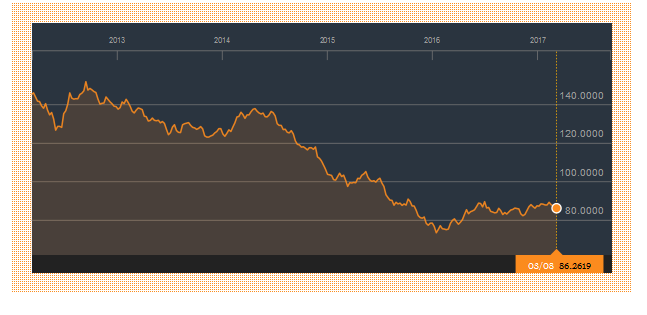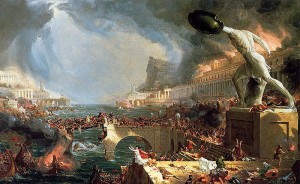As you may have heard, Jair Bolsonaro has won election in Brazil.
“I am in favor of a dictatorship, a regime of exception.”
“The pau-de-arara [a torture technique] works. I’m in favor of torture, you know that. And the people are in favor as well.”
“Through the vote you will not change anything in this country, nothing, absolutely nothing! It will only change, unfortunately, when, one day, we start a civil war here and do the work that the military regime did not do. Killing some 30,000, starting with FHC [then-president Fernando Henrique Cardoso], not kicking them out, killing! If some innocent people are going to die, fine, in any war innocents die.”
“I would not employ [a woman] with the same salary [of a man]. But there are many women who are competent.”
“I’ll give carte blanche for the police to kill.”
‘We are going to gun down all these Workers Party supporters,’ [Bolsonaro] shouted at a later rally, using a tripod to mimic shooting a rifle….
In addition Bolsanaro has:
- Promised to cut down the Amazon jungle (source of 20 percent of the world’s oxygen) as fast as possible
- To destroy the remaining indigenous tribes of the Amazon
- To either send left-wingers into exile or to jail them
Evangelicals, as a group, remain a putrescent abscess wherever they are.
Perhaps even more decisive was the backing Bolsonaro enjoyed among evangelical voters, who account for up to a quarter of the electorate. They proved to be a soft target for the “fake news” spread by his social media campaign, most notably the preposterous claim that Haddad planned to distribute “gay kits” in primary schools instructing teachers to encourage homosexuality.

Jair Bolsonaro
I will remind readers that there was a legislative coup that threw out the left-wing President for corruption (the idea that she was more corrupt than most of the people voting to get rid of her is hilarious). Then the most popular politician in Brazil, Lula, was sent to prison (again, ostensibly on corruption charges) and not allowed to run.
In other words, first the field was cleared of politicians who were almost certainly less corrupt than most Brazilian politicians (and almost certainly no more corrupt), then the right-wing brought in the most extreme politician possible. That politician will now purge the left, in an attempt to ensure right-wing rule for at least a generation, and probably two. (The same thing is currently happening in Argentina.)
The best parallel for Bolsanoro is probably the Phillipines’ Duterte. Lots of extra-judicial murder, lots of corruption for the “right” people, lots of boot in the face for the “wrong” people.
For those outside Brazil, the main issue is the Amazon. If its destruction is significantly sped up (and I see no reason to doubt that it will be), it will make our environmental problems much, much worse.
I’m not a believer, generally speaking, of interfering in other nations’ internal business–and that includes sanctions. But I would support a carrot-and-stick approach with regards to the Amazon: Stop cutting it down and be rewarded (with cold hard cash if necessary); Cut it down, and be brutally cut off from the outside world.
This is because such environmental issues are not just internal political matters.
Finally, I will note that much of what is happening in South America can be explained most simply as “the left was in charge when commodity prices were high, and when they dropped, and economies suffered, the left was blamed.”
That is not all that is happening, of course, but without this, neither Bolsonaro and other similar would-be, bloody-handed authoritarians, nor those who cleared the way for him, like Brazil’s right-wing judges, would have had the social sanction to act.
Those who would run left-wing governments cannot tie their economy’s health to the fickleness of commodity markets. Commodity prices are cyclical and always have been.
It can also be laid at Dilma, being the sort of technocrat left-wing moron who accepted IMF advice and engaged in austerity. The IMF is not your friend if you are left-wing. Ever. Do not accept their advice. (It’s not quite never good, but it’s over 90 percent bad. Bet the odds.)
Bolsonaro will be a disaster for Brazil and a disaster for the world. That is not to say that some Brazilians will not do well under him, some will. Most of those who voted for him, will, however, find that it was not a good, longer-term bet.
(Aside: Merkel has stood down as leader of her party. She was a terrible person, who did great evil (something her cheerleaders constantly elide). She’s still Chancellor, but her days are now numbered. Sadly, Germany will probably replace her with someone worse.)
Update: This is an excellent summary of the history that led to Bolsonaro’s election.
The results of the work I do, like this article, are free, but food isn’t, so if you value my work, please DONATE or SUBSCRIBE.




